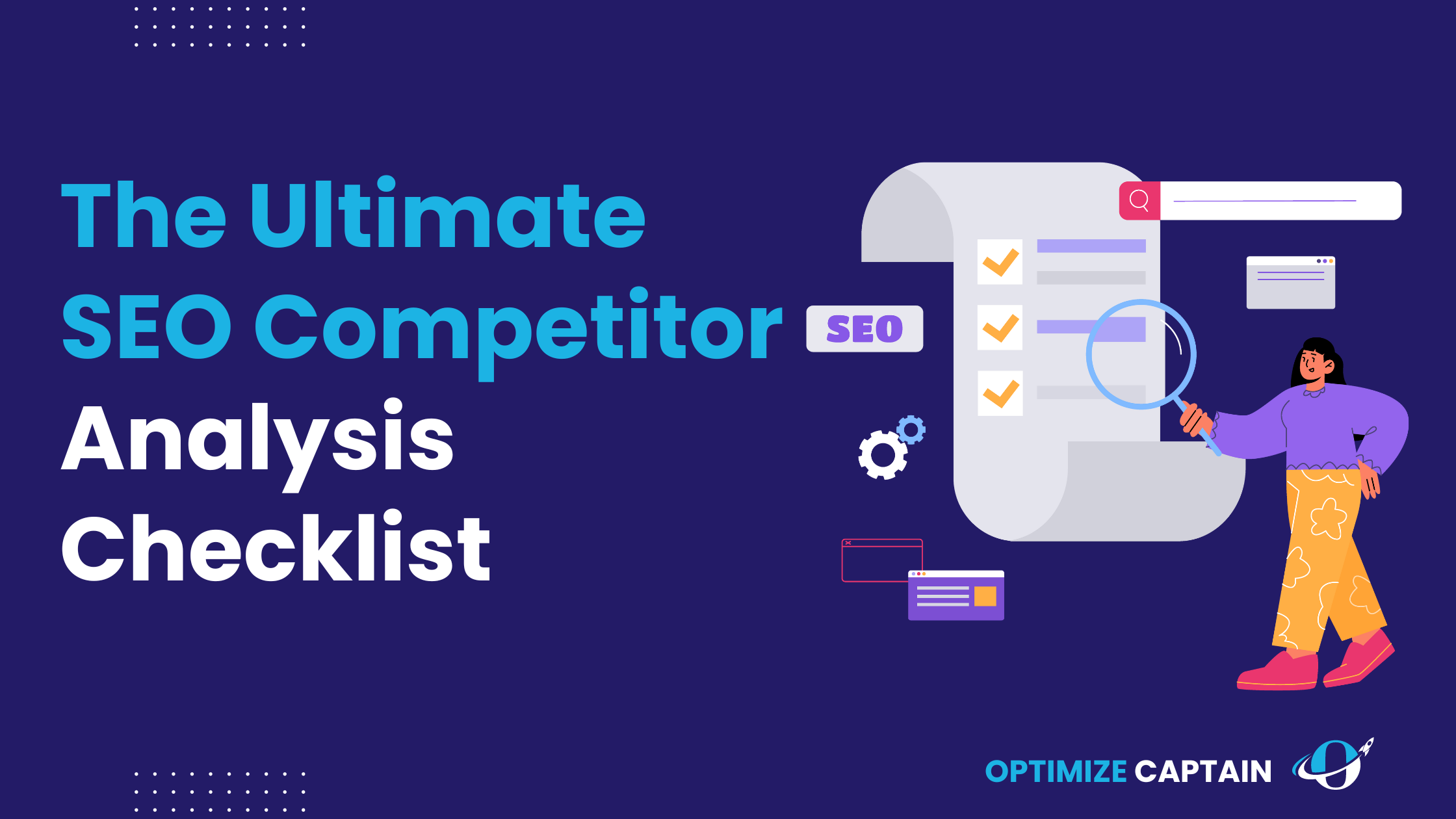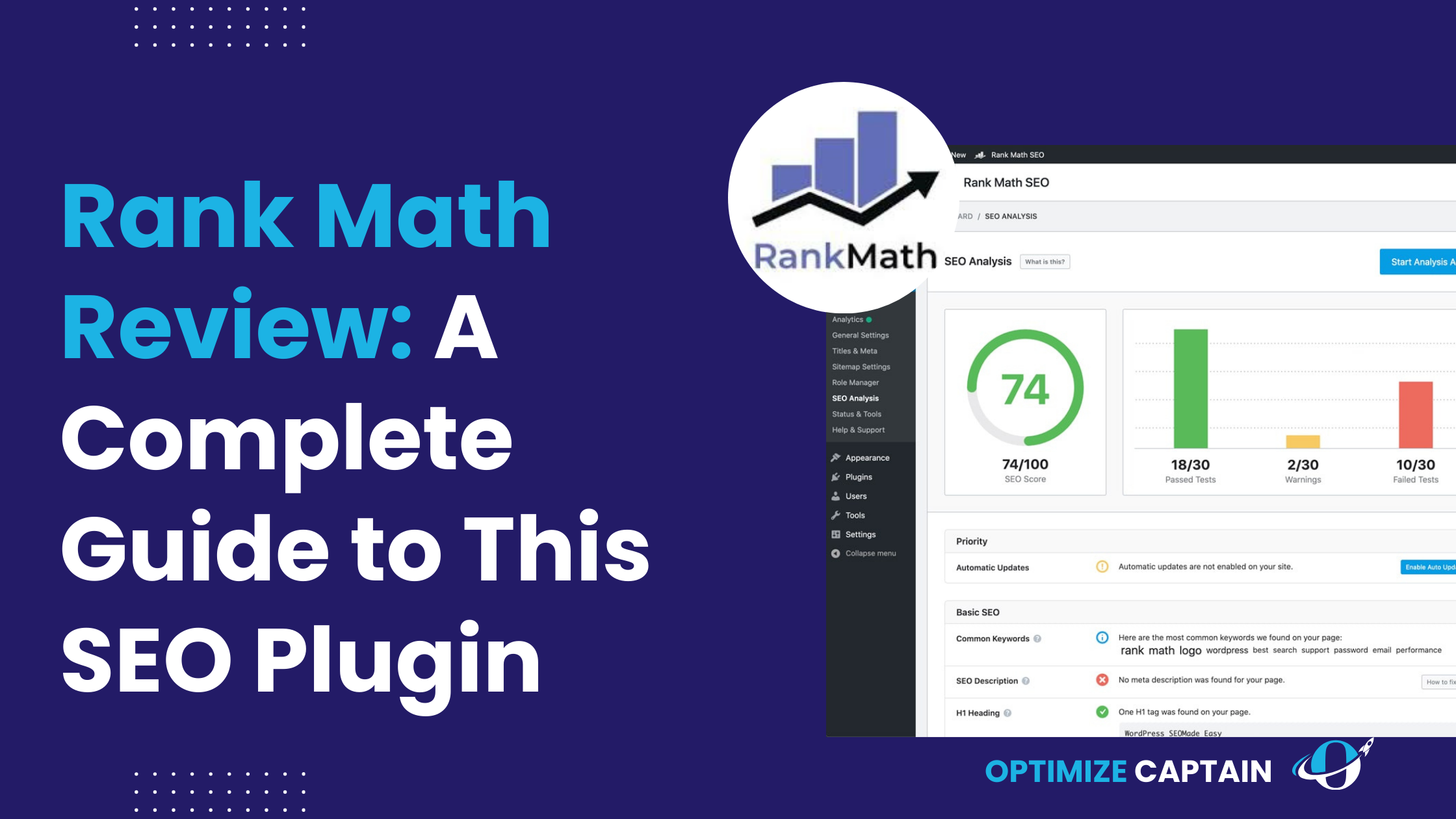If you want to improve your SEO strategy, you’ve likely encountered many backlink-building techniques like guest posting or broken link building. However, one method that’s often overlooked yet highly effective is niche edits. In this guide, we’ll explore niche edits, how they work, and how they can boost your website’s authority.
We’ll also provide actionable steps and best practices for safely and effectively incorporating niche edits into your link-building strategy.
What Are Niche Edits?
Niche edits, also known as link insertions, are a clever form of link building. Instead of creating a new blog post or guest article, you strategically add a link to an existing article or web page that’s already established authority.
Think of niche edits as a way to enhance content that already has value rather than starting from scratch. When done correctly, niche edits can pass authority from the existing page to your site, improving your rankings and credibility faster than other methods.
Here’s why niche edits work so well:
- Existing Authority: You’re not building from zero. The page where your link is inserted already has authority, history, and sometimes backlinks, making the link more powerful.
- Relevance: When your link is added to content that aligns with your niche, Google sees it as a natural addition, and this can boost your rankings.
- Content Freshness: Updating an older article with fresh information, including your link, can trigger Google’s freshness algorithm, giving both the page and your link a ranking boost.
- SEO Value: The link doesn’t just boost traffic—it can enhance your site’s SEO by passing on the authority of the hosting page (a concept known as “link juice” that will be discussed later in this article).
- Efficient: Niche edits are a time-saving strategy. They require less effort than creating new content, as you simply insert a link into an already-established page. This efficiency can empower you to focus on other aspects of your SEO strategy.
How Do Niche Edits Work?
While the concept is straightforward, getting niche edits requires strategic planning. Here’s a step-by-step breakdown of how it works:
- Identify Relevant Websites: The first step is to find websites with existing content related to your industry. These websites should have high domain authority, a solid backlink profile, and be relevant to your niche.
- Outreach and Value Proposition: Reaching out to website owners can make or break your niche edit campaign. Your outreach email needs to offer something valuable, such as updating outdated stats, improving the article’s content, or providing a new perspective that the website’s readers would find useful.
- Keep your outreach personalized. Explain why adding your link improves their article and the value it will bring.
- Offer to improve their content by updating information or providing expert insights in your niche.
- Content Enhancement: Don’t just add your link and walk away. You should offer additional value by suggesting a relevant paragraph or a few sentences that make the link fit seamlessly within the content.
- If possible, suggest relevant updates or additions that align with the article’s topic. For instance, if the article is about SEO strategies, provide updated tips or case studies.
- Strategic Link Placement: It’s crucial to place your link where it will appear natural and provide the most SEO value. Ideally, the link should be within the body of the article, surrounded by relevant content.
- Avoid placing the link in footers, comments, or unrelated sections, as this can devalue the link.
- Follow-Up: Once the link has been inserted, monitor it. Ensure that it stays active and continues to pass authority to your site. Occasionally, website owners may update their articles or remove links, so it’s important to follow up and keep an eye on the links.
Why Use Niche Edits for SEO?
Niche edits offer several distinct advantages over other forms of link building. Their immediate SEO gains, cost-effectiveness, potential for increased traffic, and ability to boost domain authority make them a highly effective strategy.
- Quick SEO Gains: Since the link is added to an established article, the benefits are almost immediate. Unlike guest posts that need time to get indexed and rank, niche edits leverage existing rankings to pass authority faster. This immediate impact can reassure you of the effectiveness of your SEO strategy.
- Cost-Effective: In many cases, niche edits are less costly than other link-building methods. You don’t need to spend money on content creation, as you’re utilizing what’s already published. This cost-effectiveness can make you feel resourceful and prudent in your SEO strategy.
- Increased Traffic: Placing your link on a popular, high-traffic page means you could also benefit from referral traffic, not just SEO gains.
- Boosted Domain Authority: Niche edits placed on high-authority sites can pass significant link juice to your website, improving your overall domain authority and making it easier for your site to rank for competitive keywords.
- Strengthened Backlink Profile: A diverse backlink profile with high-quality links from different domains helps improve your site’s credibility. Niche edits offer a more sustainable way to build a variety of authoritative links without resorting to spammy tactics.
White Hat vs. Black Hat Niche Edits
Not all niche edits are created equally. It’s crucial to differentiate between ethical (white hat) and unethical (black hat) approaches.
White Hat Niche Edits
This is the ethical, sustainable way of acquiring niche edits. It involves reaching out to site owners, offering value, and gaining their permission to insert your link into their content. The link is added naturally and provides value both to the article and to the readers.
Key Points for White Hat Niche Edits:
- Always ask for permission from the website owner before adding a link.
- Only place your link in content that is relevant to your industry.
- Offer to enhance their content by providing updates, new insights, or improved information.
- Avoid paying for links that don’t offer any real value or relevance.
- Build long-term relationships with webmasters to secure high-quality, sustainable links.
Black Hat Niche Edits
Black hat niche edits involve unethical practices, such as hacking into a site to insert links or paying low-quality sites to add links without any genuine value. These tactics may result in short-term gains, but they carry the risk of Google link-building penalties and loss of rankings.
Avoid Black Hat Niche Edits:
- Never insert links into websites without the owner’s permission.
- Stay away from low-quality sites that accept payment for link insertions with no quality control.
- Avoid keyword stuffing or using irrelevant anchor text that doesn’t match the surrounding content.
Niche Edits vs. Guest Posting

Both niche edits and guest posting have their place in an SEO strategy, but they serve slightly different purposes.
- Effort Required: Guest posting requires you to pitch a website owner, create new content, and place your link within it. Niche edits, on the other hand, involve less work since you’re using existing content.
- Time to See Results: Niche edits provide quicker SEO results because the page where your link is placed has already been indexed and established. Guest posts, while beneficial, take longer to build authority and drive SEO gains.
- Cost: Since you don’t need to create new content for niche edits, they are often more cost-effective than guest posts.
- Flexibility: With guest posts, you control the narrative since you’re writing the content. However, with niche edits, you’re working within the framework of someone else’s content, so your link needs to blend in naturally.
- Authority Boost: Guest posts give you control over anchor text and surrounding content, but niche edits tap into the existing SEO power of an established page, providing a stronger boost in less time.
Example: How to Secure a Niche Edit
Let’s say you run a website that sells eco-friendly kitchen products. You want to improve your site’s SEO by acquiring niche edits.
Here’s how you could do it:
- Research: Start by finding blogs or articles that talk about sustainable living or eco-friendly kitchen tips. Use tools like Ahrefs or Semrush to identify articles with high domain authority.
- Analyze Content: Make sure the content is relevant to your niche and could benefit from an update. For instance, if the article is about “Best Eco-Friendly Kitchen Gadgets,” you could suggest adding your product as an additional option.
- Personalized Outreach: Reach out to the site owner or editor and explain how your product fits into the existing article. Offer to provide a short description or additional information that will add value to their readers.
- Follow-Up: After securing the niche edit, follow up to ensure the link remains live and that it continues to pass authority to your site.
The Role of Anchor Text in Niche Edits
Anchor text is the clickable text in a hyperlink, and it plays a critical role in SEO. Google uses anchor text to understand what the linked page is about, so choosing the right anchor text is crucial for a successful niche edit.
- Relevance: Your anchor text should be relevant to both the content where it’s placed and the linked page. For example, if the page talks about sustainable products, your anchor text could be “eco-friendly kitchen gadgets.”
2. Natural Placement: Anchor text should appear naturally within the article. Avoid forcing in exact-match keywords in a way that feels awkward or unnatural to readers. Google’s algorithm is sophisticated enough to detect when an anchor text doesn’t fit the context, which could result in a penalty or reduced ranking. For instance, instead of an unnatural phrase like “buy eco-friendly kitchen gadgets online,” opt for something more organic like “a wide range of eco-friendly kitchen gadgets.” The second option flows more naturally within content, offering the reader a better experience and signaling to Google that the content is relevant and valuable.
3. Anchor Text Diversity: Using the same anchor text repeatedly across different links can appear spammy and trigger penalties. To avoid over-optimization, it’s essential to vary your anchor texts. You might alternate between exact-match, partial-match, and branded anchor texts. For example:
- Exact match: “eco-friendly kitchen gadgets”
- Partial match: “sustainable kitchen items”
- Branded: “EcoHome products”
By diversifying your anchor text, you not only improve the chances of ranking for multiple search terms but also reduce the likelihood of Google flagging your link profile as unnatural.
4. Keyword Optimization: While it’s important to include relevant keywords, overloading your anchor text with exact matches can do more harm than good. Google prefers a mix of keyword-rich and branded anchor texts that fit naturally into the content. For niche edits, aim to balance SEO-friendly terms with readability, ensuring that the anchor text supports the overall user experience.
5. Surrounding Content: Google looks at more than just the anchor text itself; it also examines the content around it. The words and phrases surrounding your anchor text can provide context that helps Google better understand the relevance of the link.

6. Avoid Over-Optimization: While it may be tempting to use exact-match anchor text every time, doing so can hurt your rankings. Over-optimized anchor text is a common signal of manipulative link building. Instead, focus on using a mix of natural and partial-match anchors that fit organically within the content. Google’s algorithm favors content that appears naturally informative over content that seems keyword-stuffed.
Benefits of Niche Edits for SEO
Now that we’ve discussed the role of anchor text, let’s dive into why niche edits are such a powerful SEO tool.
- Immediate Authority Transfer: One of the primary reasons niche edits are so effective is that they allow you to tap into the authority of an existing webpage. Instead of building a new page from scratch and waiting for it to gain authority, a niche edit allows you to leverage the SEO strength of a page that’s already well-established. This can lead to faster rankings for your target keywords.
- Better Engagement Metrics: When done correctly, niche edits boost SEO and can improve user engagement. Placing your link in relevant, high-traffic content increases the likelihood that users will click through to your site, leading to more traffic and potentially longer on-site engagement.
- Cost-Effectiveness: Creating new content takes time, effort, and resources. Niche edits, on the other hand, allow you to benefit from existing content, which means less effort on your part. Plus, website owners are more likely to agree to link insertions if they don’t have to review or edit entire new posts, making niche edits a more affordable strategy.
- Trust and Credibility: Links placed on authoritative, trusted sites send positive signals to Google. This is particularly true if your niche edit is placed on a well-known or reputable site within your industry. It shows that your site is associated with other high-quality content, which can improve your trustworthiness in the eyes of both Google and users.
- Higher Conversion Potential: Because niche edits place your link within contextually relevant content, they often lead to higher-quality traffic. Visitors coming from a niche edit are likely to be more interested in your product or service, making them more likely to convert.
What is Link Juice and How Does It Relate to Niche Edits?
“Link juice” refers to the SEO value or equity that is passed from one website to another through backlinks. The higher the authority of the linking page, the more link juice it can pass to your site, boosting your SEO performance.
How Niche Edits Help Maximize Link Juice:
- Pre-existing Authority: Since niche edits are added to content that has already built up trust with search engines, the link juice passed to your website is often more potent than if it were from a newly created page.
- Topical Relevance: If your link is placed within relevant, high-quality content, more link juice will flow to your site. Google assesses the relevance of the content to ensure that the link is a natural fit, which directly affects how much link juice flows to your site.
- DoFollow vs. NoFollow Links: It’s important to ensure that the niche edit is a dofollow link, as these pass on link juice. NoFollow links, while still valuable for referral traffic, don’t contribute as much SEO value because they don’t pass link equity.
- Older Pages: Links placed on older, established pages often pass more link juice than those on newer pages. This is because older pages typically have more backlinks and are seen as more trustworthy by search engines. Niche edits allow you to take advantage of this by placing your link on a page that has already been indexed and ranked by Google for a long time.
- Multiple Links from the Same Domain: While having multiple backlinks from a single domain is beneficial, each additional link will pass slightly less link juice than the first. Therefore, it’s important to diversify your niche edits across various authoritative domains to maximize the total link juice flowing to your site.
How to Safely Use Niche Edits for SEO
When it comes to link building, you want to stay on the right side of Google’s guidelines to avoid penalties. Here’s how to safely implement niche edits without jeopardizing your website’s rankings:
- Target Only High-Quality Websites: Not all backlinks are created equal. Links from low-authority or spammy websites can harm your SEO efforts more than help them. Always target high-quality websites that are relevant to your niche.
- Focus on Relevance: Ensure that the page where your link is placed is contextually relevant to your business. For example, if you’re in the health industry, getting a link from a blog about technology won’t provide as much value as a link from a health and wellness blog.
- Avoid Keyword Stuffing: Overusing exact-match keywords in your anchor text can trigger penalties from Google. Instead, focus on making your links appear natural by varying the anchor text and avoiding keyword stuffing.
- Monitor Your Backlinks: After securing a niche edit, it’s essential to keep track of it. Use tools like Ahrefs or SEMrush to monitor your backlinks and ensure that they remain live and relevant. If the site owner updates the content or removes your link, you’ll want to address it right away.
- Long-Term Relationships with Webmasters: Building a relationship with the website owners where your links are placed can pay off in the long run. By fostering trust, you may be able to secure multiple links or future collaboration opportunities.
Common Risks and Best Practices for Niche Edits
Like any link-building strategy, niche edits come with their risks. While niche edits can be a powerful tool to boost your SEO, poor execution or unethical practices can lead to penalties from search engines, potentially harming your website’s rankings. Here are the most common risks associated with niche edits, along with best practices to mitigate them:
1. Ensure Content Relevance
One of the people’s biggest mistakes when implementing niche edits is placing links in irrelevant content. This can make link appear spammy and unnatural, leading to penalties from search engines like Google. The content where your link is placed must align with your niche, industry, or subject matter.
Best Practice: Ensure the page hosting your link is topically relevant to your site. For example, if your website sells eco-friendly products, your link should be placed in an article discussing sustainability or green living, not a tech blog discussing the latest gadgets. Relevance ensures that users and search engines perceive your link as valuable and legitimate.
2. Build Relationships with Webmasters
Another common risk is relying on one-off link placements, which can appear transactional and lead to inconsistent results. Without maintaining a relationship with the site owner or webmaster, you may miss out on future opportunities or even have your links removed after some time.
Best Practice: Establish long-term relationships with webmasters. Rather than approaching them only for a one-time niche edit, focus on collaboration and value exchange. Offer to help enhance their content or contribute expert insights and keep the lines of communication open for future link-building efforts. Building trust can result in multiple backlinks and long-lasting partnerships.
3. Monitor Your Links
Once your niche edits are secured, your work isn’t done. Links can get removed or altered over time, either due to website updates or intentional changes by the webmaster. Not monitoring your backlinks could mean losing valuable link juice without realizing it.
Best Practice: Regularly audit your link profile using Ahrefs, SEMrush, or Moz tools. These tools allow you to track all the backlinks pointing to your site and notify you if any are removed or altered. If a link is lost, contact the webmaster to find out why and, if possible, have it restored.
4. Avoid Link Farms and Low-Quality Sites
Another significant risk is acquiring niche edits from low-quality sites or link farms. While securing links from any site that accepts them may be tempting, low-quality backlinks can have the opposite effect on your SEO, potentially leading to penalties.
Best Practice: Always prioritize high-quality, authoritative websites for niche edits. Avoid any site that appears to sell bulk backlinks or has thin, irrelevant content. Links from reputable sites in your industry will pass far more SEO value than dozens of links from low-authority or spammy domains.
5. Stick to White-Hat Techniques
The biggest risk in niche edits is using unethical or “black-hat” methods to acquire links. Black-hat techniques include buying links from spammy websites, hacking websites to insert links, or using irrelevant anchor text to manipulate rankings. These tactics are unethical and can lead to severe penalties from Google, including de-indexing your website.
Best Practice: Stick to white-hat SEO practices. This means acquiring niche edits through ethical means, focusing on value creation, and avoiding link-building tactics that violate Google’s guidelines. By playing the long game and focusing on high-quality, relevant links, you’ll see sustainable SEO results without risking penalties.
Conclusion
Niche edits are a powerful addition to your SEO toolkit. They offer a cost-effective, efficient way to build high-quality backlinks from established content that already has authority and ranking power. By focusing on relevance, quality, and ethical practices, niche edits can significantly improve your site’s rankings and drive more organic traffic.
Now that you know how niche edits work and why they’re so effective, it’s time to start. Begin by identifying high-authority websites in your niche, reach out to build relationships, and secure your niche edits through value-driven outreach. With time and consistency, you’ll see your SEO results soar.
FAQ on Niche Edits
1. Are Niche Edits Safe for SEO?
Yes, niche edits are safe as long as they’re acquired through ethical (white-hat) methods. When your links are placed on high-authority, relevant websites, they can significantly boost your SEO without risking penalties. However, avoiding black-hat practices like using irrelevant content or inserting links without permission is essential, as these can lead to penalties.
2.Niche Edits vs. Guest Posting – Which is Better?
Both niche edits and guest posting have advantages, but the choice depends on your SEO goals.
Niche Edits are typically quicker and allow you to leverage the authority of an existing page. Since the page is already indexed and may rank well, niche edits often provide faster results.
Guest Posting is better for building brand awareness and controlling the narrative, as you’re providing a new piece of content from scratch. It’s more effort, but you have complete control over the content, which can be valuable for your brand voice and authority.
3.How Can I Use Niche Edits for SEO?
To use niche edits effectively for SEO, follow these steps:
Identify Relevant Websites: Use SEO tools like Ahrefs or SEMrush to find high-authority websites that allow link insertions within your niche.
Outreach: Contact the site owners and propose adding value to their existing content, such as updated stats, expert insights, or additional information.
Place Your Link Naturally: Ensure your link fits naturally within the existing content, using anchor text that makes sense within the context.
Monitor Your Backlinks: After placing the link, track it to ensure it stays active and continues to pass link juice.





